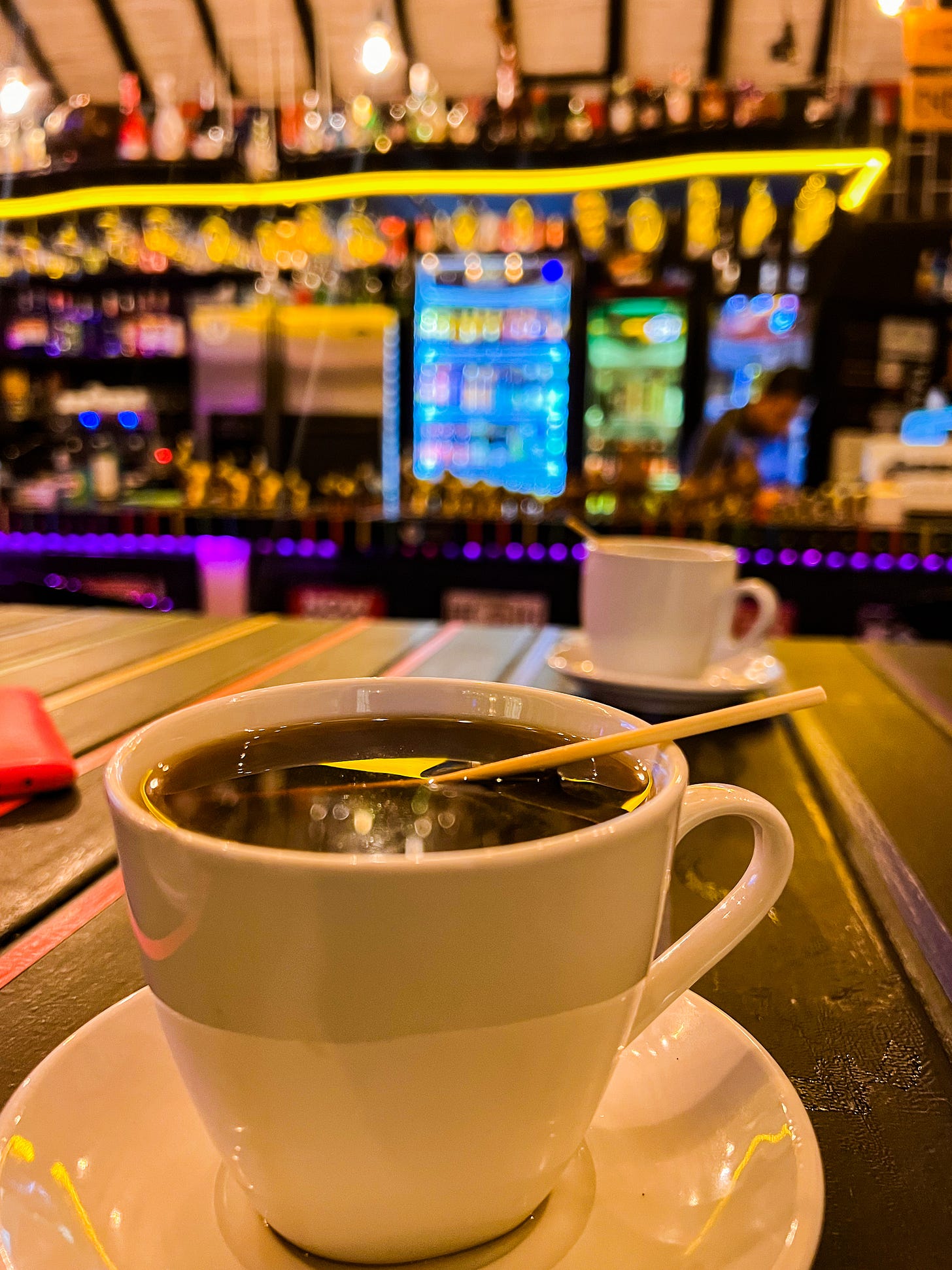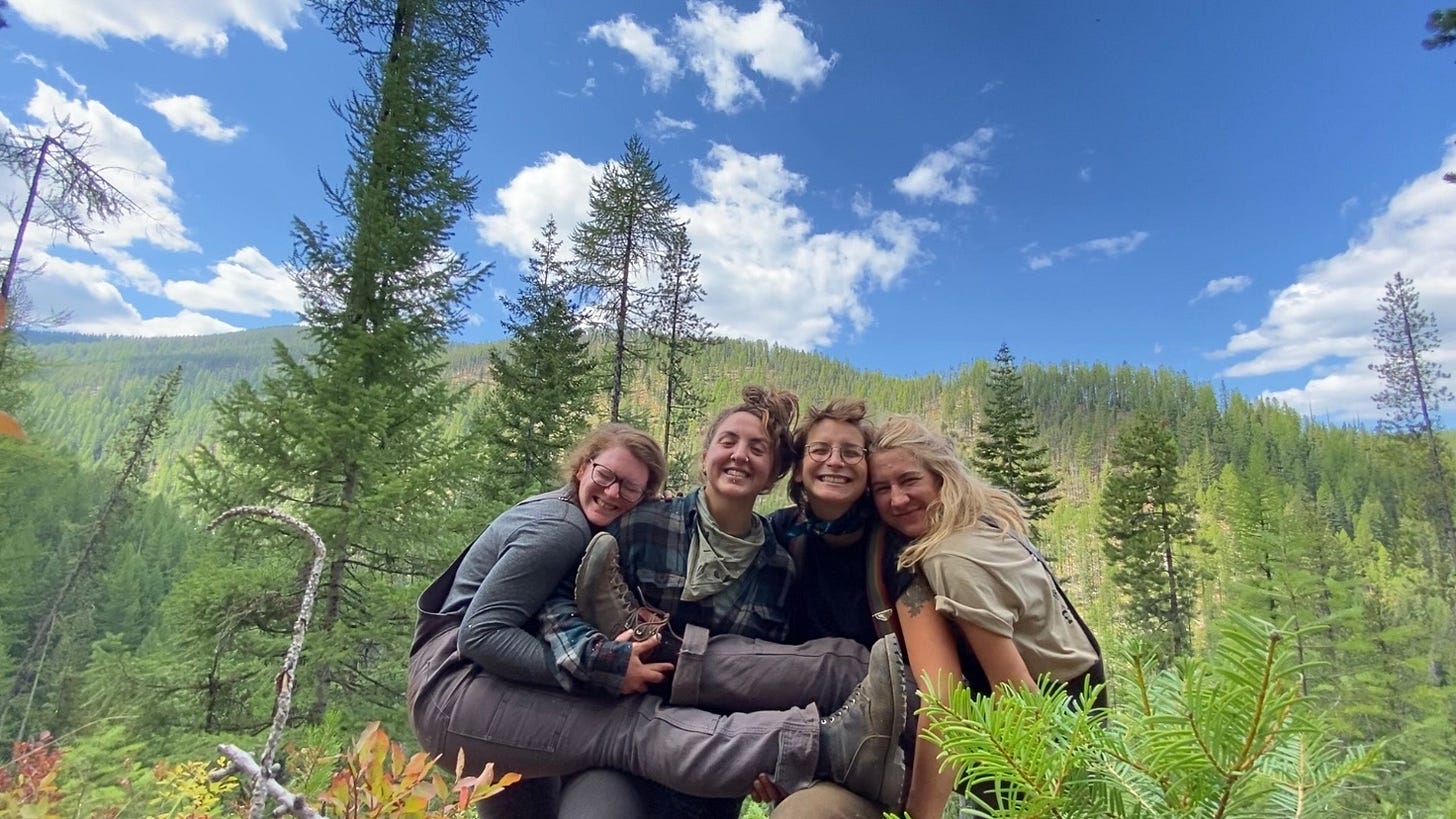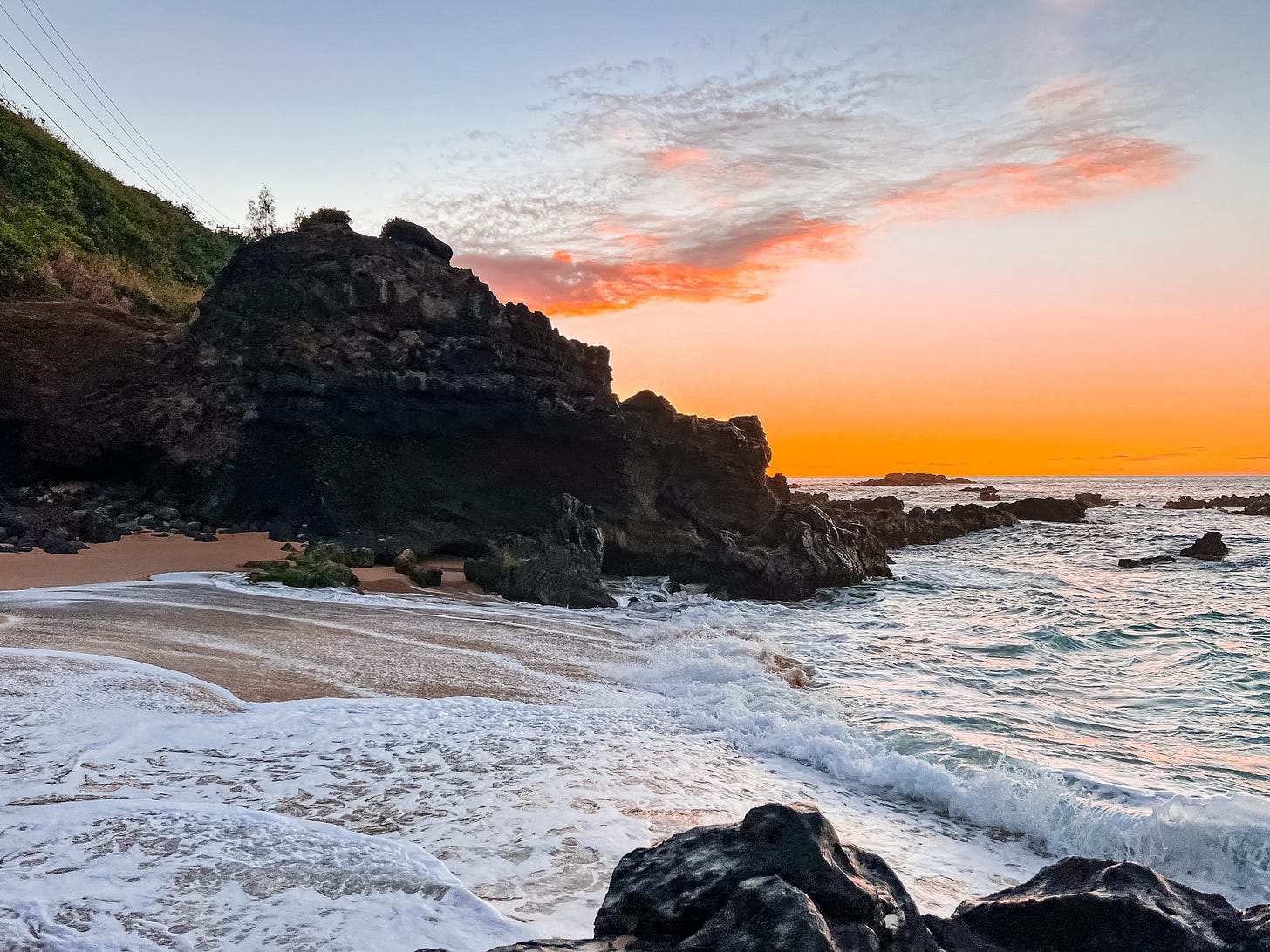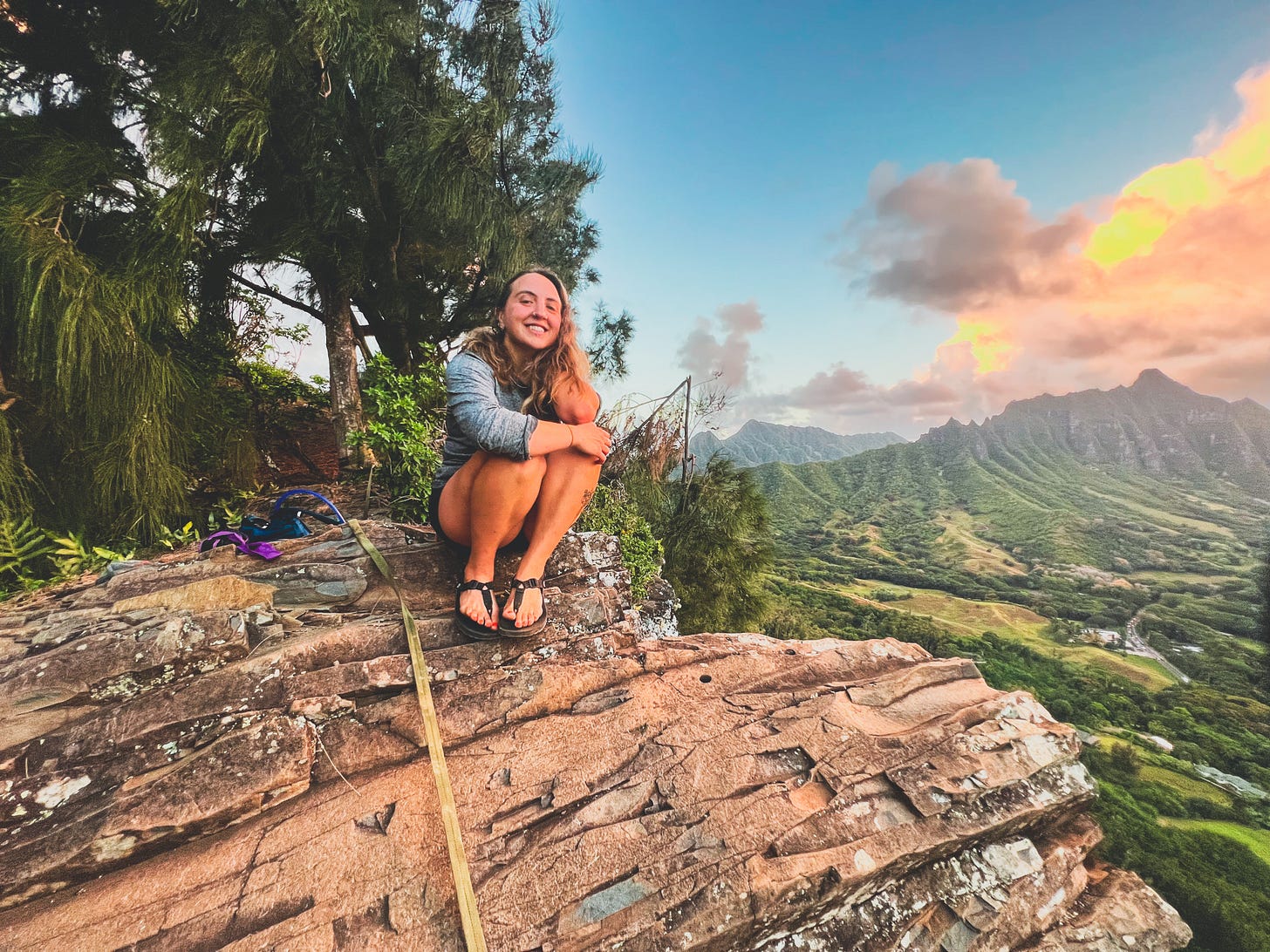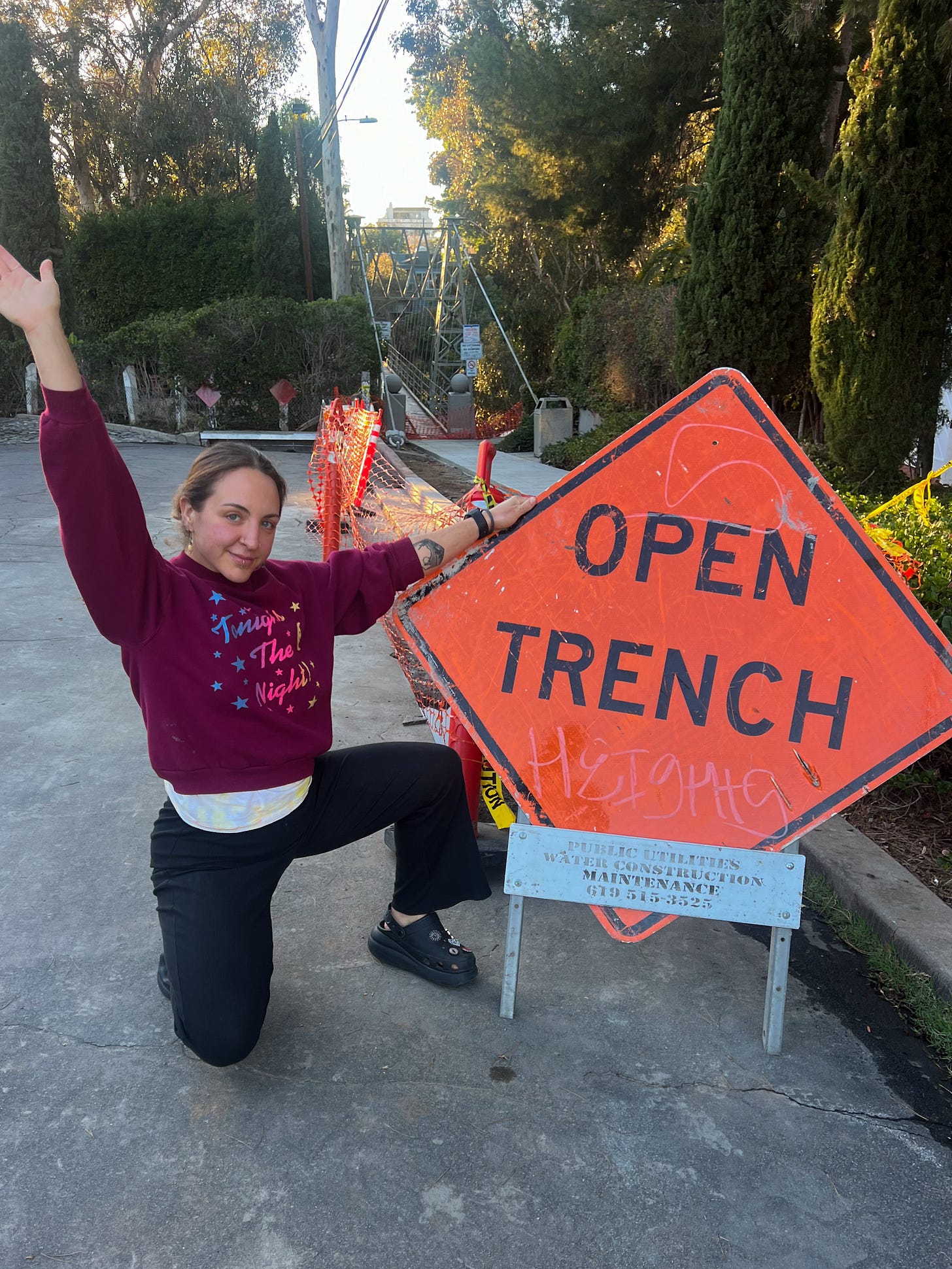The final rodeo is a mentality I have been running with recently. I’m retiring from my bad habits for good, you know? Personally, I believe it to be true so it doesn’t matter if it actually is. As a 30-year-old woman, this era of quitting things must be the most development my brain has experienced since childhood, wide-eyed and spongy, gobsmacked by some new facet of selfhood in the middle of every ordinary afternoon. It is magical and deeply uncomfortable. I am more creative than ever and more full of rage than ever. I love it.
The second-to-last drink I had was chicha - an ambiguous, colorful beverage with tempting, Kool Aid-like flavors and colors, offered up in sampler cups and carafes alike. If you walk through the plazas of Bogotá, you will be offered cocaine, weed, and chicha in constant succession. I was a timid tourist and didn’t bite at any of the offers alone, a woman in a foreign country and a big, big city. I met up with a man from England for a night and we took a walk, smoked a joint, and tucked into a loud booth in the back of a tiny bar with a colorful jug, polishing it off. It was sweet and only faintly alcoholic in taste. I only write about the second-to-last time because I remembered the first a couple days after drafting this.
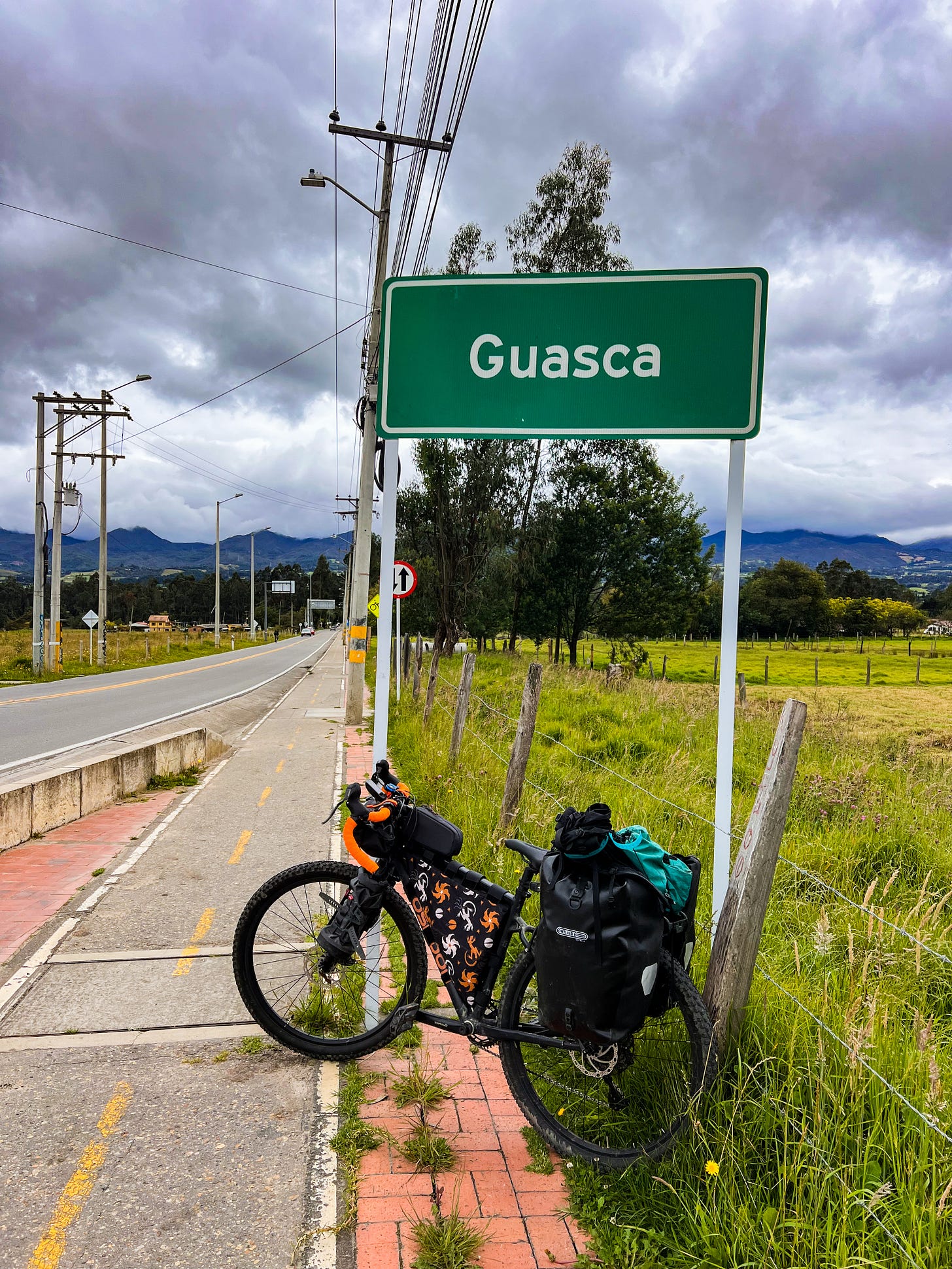
My actual last drink was with a woman whose home I stayed at in the Colombian countryside. January 9, 2023. I arrived in Guasca on my bicycle on the other side of her fence and she laughed at my defeat and poor Spanish skills, exhausted after dodging lunging dogs with rocks and pepperoni sticks for the last mile I spent lost. Her perfect English was a relief as she welcomed me in. She offered me a shower, rolled me joints in front of the fireplace, cooked me risotto with vegetables from her garden, then took me out to meet her friends in Guatavita. We walked into the setting sun with Bruno, her floppy white puppy with a big black spot over his eye, and we stopped in a hostel for an alcoholic coffee beverage - carajillo. She said it was strong and traditional. Silvia was a beacon of light on a dark day, and I’m so grateful that I shared my final drink with her.
This is not my first stint with abstinence from alcohol. In fact, I spent my 20s pretty alcohol-free, deliberately and incidentally. I am surprisingly not inclined by psychological addiction to drink. I’ve always had vices I was far more apt to indulge (weed, food, spending money, social media, etc.).
That wasn‘t true the summer of 2021 though. In Montana, I was in a renewed party girl era, and goddamn, it was probably the most fun I’ve ever had. My trail crew and I spent our nights out on the town. We were on the lawn of the Boise zoo at 4 a.m. playing croquet with people we’d worked hard to recruit, we were shotgunning seltzers past the wilderness boundary in the middle of the day, we were sleeping in parking garages in downtown Missoula for the weekend.
When the season ended, I parted ways with my crew including someone I considered to be one of my best friends after spending nearly everyday together for six months. People would meet us side by side and think we’d known each other for years, bounding with this collective energy that felt so electric to anyone nearby. We were making plans to return to the same crew. We cried in the streets of Seattle with one final hug, dressed up as each other for Halloween. I got ghosted.
After I stopped questioning why and the initial hurt of it had begun to fade, I felt jaded by all the fun I’d had. Was alcohol the only way that I was able to cultivate this sense of closeness? Was any of it real at all? If I wanted to invite friendships and relationships into my life that were long-lasting and committed, would alcohol consistently be a barrier to that? Looking back on all the fun I had, I couldn’t shake the darkness that had been with me throughout. That empty feeling, the quiet but persistent anxiety buzzing when alcohol’s been coursing through your blood. I was having more fun than ever, I had the best social life I’ve had in years, and I still felt so incredibly disconnected.
In January 2022, I was living on O’ahu and by no means sober. I was growing weed with nobody to sell it to and smoking copious amounts of it. I also grew mushrooms and I took them every other day. The microdosing journey is another story entirely. I was, however, exploring the first steps to the point I’ve ultimately ended up at which is super ultra fully sober, maybe not forever but definitely for a while.
In my strange, tropical, blissed out stoner daze, I met Casey. To say we met at the right time feels like an understatement. While getting to know one another, we went out for drinks at a restaurant across the street from the climbing gym in Honolulu, nursing cocktails. The second time we went, we both mentioned how we never drink and laughed about the socially conditioned habit to grab drinks when you start dating someone, and we haven’t had a drink together since.
Perhaps it was the drug-and-island-induced spiritual enlightenment I was experiencing while listening to Ram Dass for eight hours a day, but verbalizing that sentiment was really important. More important than that was removing alcohol from the dating equation. I had to get to know someone without any social lubricants. I didn’t even smoke weed when I hung out with Casey because I didn’t want to be aloof or paranoid or socially awkward.
I hadn’t dated someone new in six years and prior to that, I had never really dated sober. I was in my early 20s after all. By intentionally setting this boundary of not drinking with one another, we were making a certain commitment to the type of relationship we were building without any other expectations. We were simply making a commitment to be present when we hung out by taking this one little thing out of the equation, and it was a very convincing case study for my (semi)-permanent alcohol-free lifestyle. Falling in love is incredibly overwhelming in the best way and I am so glad I was there for it without distraction.
Looking back, my stints of sobriety have been rooted in the same general idea. What if I just took this one thing out of the equation? Would I sleep better? Would I eat better? Would I be faster or put on more muscle mass? Would I be able to love my friends and family better? Would I be able to love myself better? It has felt like an easy choice at times because there’s factually no way in which it’s helping any of these things. It’s easy because it’s the first step, and maybe it will have some benefits that trickle into other areas of my life that I’m struggling to address or make changes regarding.
Now it is my default setting. Building rock-solid habits is all about making things easy and natural and turning it into the thing you do without second thought. I can easily moderate my drinking, but I choose not to. Why moderate when you could simply abstain? Which takes less effort? Perhaps one day I’ll be in another country with another woman like Silvia from Guasca and saying yes will be obvious. But most days saying no is just what I do. Months (and now a whole year) of this practice conditioned me in my thinking and was ultimately the catalyst for so much other change in my life, so many other decisions I switched to “default” mode. I’m not choosing to do things based on whether or not I work in the morning or whether I feel happy or sad. I am simply doing the things I should do. Each time I’ve quit something, I’ve reminded myself that I’m giving myself back that choice. I get to decide what I’m doing. There is no more auto-pilot. I am engaged, I am behind the wheel, I will not crash this car.
Finally, there is a part of this that just feels like a critical part of simple living, minimalism, anti-consumerism values, the spiritual path, and the overall framework of my existence. Living a life in which I have fewer decisions to make seems like the easiest way to dull the dissonance, stay on the path, and ensure better outcomes for myself in a world where I am faced with countless variables beyond my control. I spend less money. There are fewer impulse choices. I am free to think about other things. I am coherent enough to do other things. My brain and body are healthier and I am less burdened by health risks associated with alcohol. These are all very convincing arguments to me a year in, and I tend to collect more as time goes on.
Quitting alcohol is one of the most important decisions I’ve ever made. I have built an unshakeable trust in myself that has made nearly anything possible. It was the thing that made me realize I can simply do what I say I’m gonna do and that is the greatest gift I could offer myself. I am no longer willing to contribute to my own chaos just to end up hungover. If chaos is on the menu, it’s got to be better than that.


